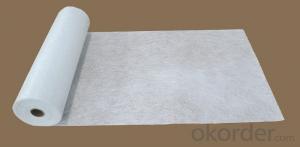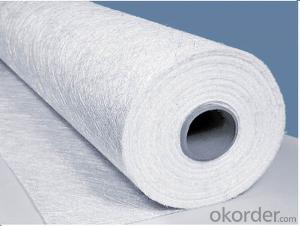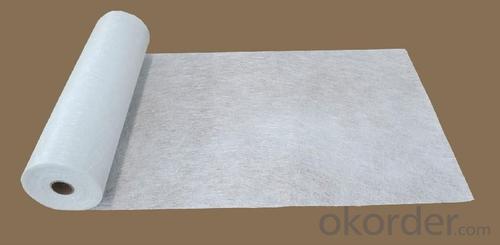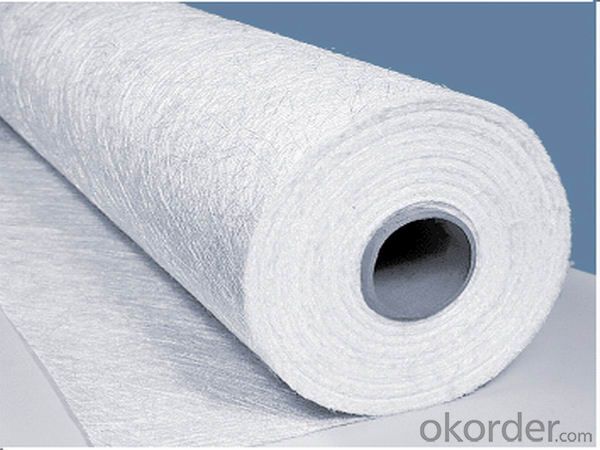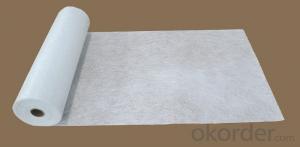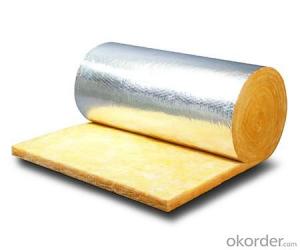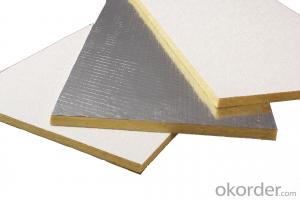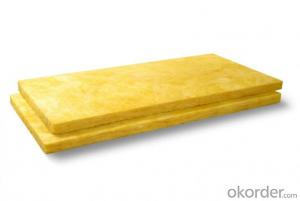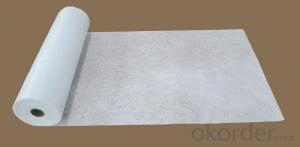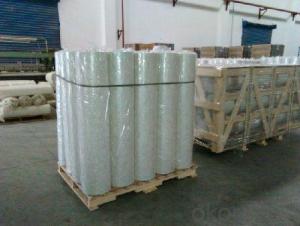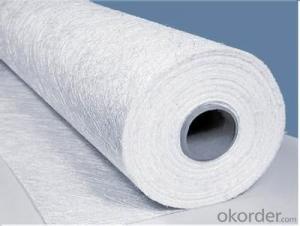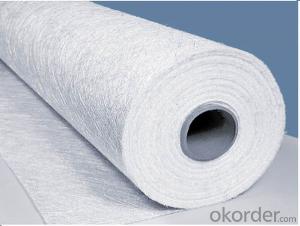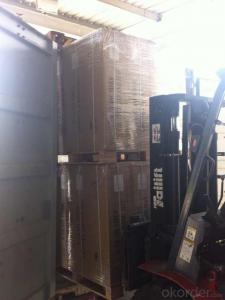Fiberglass Mat Tissue E-Glass Fiber Chopped Strand Mat (Powder Bonded)
- Loading Port:
- Shanghai
- Payment Terms:
- TT or LC
- Min Order Qty:
- 20000 kg
- Supply Capability:
- 200000 kg/month
OKorder Service Pledge
OKorder Financial Service
You Might Also Like
Brief Introduction
Chopped strand mat (or CSM as it is often known) is the most widely used of all composite reinforcement materials.
Short strands of glass are randomly scattered and bound to create a mat which can then be wetted out with resin and used as a general purpose reinforcement for traditional fibreglass (GRP/FRP) moulds or parts.
Product Features:
1. Fast Wet-out
2. Even thickness
3. High mechanical strength
4. Excellent wet strength retention
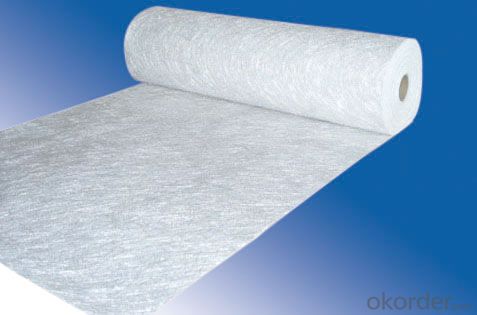
Product Specifications: Property Area Weight Moisture Content Size Content Breakage Strength Width (%) (%) (%) (N) (mm) Property IS03374 ISO3344 ISO1887 ISO3342 EMC80P ±7.5 ≤0.20 8-12 ≥40 50-3300 EMC100P ≥40 EMC120P ≥50 EMC150P 4-8 ≥50 EMC180P ≥60 EMC200P ≥60 EMC225P ≥60 EMC300P 3-4 ≥90 EMC450P ≥120 EMC600P ≥150 EMC900P ≥200
Special specification can be produce according to customer requirements.
Deliverytime
15-20days after received deposit.
Packaging
Plastic bag packing, 2 / 4 / 6 / 8 rolls in one carton box,then tray.
Other terms
We accept the CUSTOMIZATION. OEM is our strength.(spec, color, packing,etc)
- Q: What is the moisture resistance rating of fiberglass mat tissue?
- The moisture resistance rating of fiberglass mat tissue can vary depending on the specific product and manufacturer. However, in general, fiberglass mat tissue is known for its excellent moisture resistance properties. It is typically designed to be highly resistant to water absorption, making it suitable for use in applications where moisture exposure is a concern. This moisture resistance helps to maintain the structural integrity and performance of the fiberglass mat tissue, even in humid or wet conditions. It is important to note that when selecting fiberglass mat tissue for a specific application, it is recommended to refer to the product specifications provided by the manufacturer to determine the precise moisture resistance rating.
- Q: Can fiberglass mat tissue be used for insulation in chemical storage tanks?
- Yes, fiberglass mat tissue can be used for insulation in chemical storage tanks. It is a commonly used material due to its excellent thermal insulation properties and resistance to corrosion, making it suitable for protecting the tank and its contents from extreme temperatures and chemical reactions.
- Q: What is the moisture vapor transmission rate of fiberglass mat tissue?
- The moisture vapor transmission rate of fiberglass mat tissue is subject to variation based on factors like the material's specific composition and thickness. As a general rule, fiberglass mat tissue tends to exhibit a relatively low moisture vapor transmission rate. Its ability to facilitate the passage of moisture vapor is comparatively limited. Consequently, this attribute renders it suitable for applications where moisture resistance is sought, such as in insulation or construction materials. However, it is crucial to acknowledge that the moisture vapor transmission rate of fiberglass mat tissue can be additionally impacted by other variables, including the existence of coatings or laminations. These additional elements have the potential to enhance or restrict its moisture vapor transmission properties.
- Q: Is fiberglass mat tissue suitable for insulation in high-rise buildings?
- Yes, fiberglass mat tissue is suitable for insulation in high-rise buildings. It is commonly used as an insulating material due to its excellent thermal and sound insulation properties. Fiberglass mat tissue is lightweight, fire-resistant, and has a high melting point, making it a safe and effective choice for insulating high-rise buildings. Additionally, it is easy to install and offers good resistance against moisture and mold, ensuring long-term performance and energy efficiency.
- Q: How does the density of fiberglass mat tissue impact its performance?
- The density of fiberglass mat tissue directly affects its performance. Higher density mat tissue is typically stronger and more durable, providing better structural support and resistance to impact. On the other hand, lower density mat tissue is lighter and more flexible, making it suitable for applications where weight and flexibility are important factors. Ultimately, the density of fiberglass mat tissue plays a crucial role in determining its strength, flexibility, and overall performance.
- Q: Can fiberglass mat tissue be used for repairing fiberglass shower stalls?
- Yes, fiberglass mat tissue can be used for repairing fiberglass shower stalls. Fiberglass mat tissue is a versatile material that is commonly used for reinforcing and repairing fiberglass structures, including shower stalls. It is designed to provide strength and durability to the repaired area, ensuring a long-lasting and reliable fix. When used in combination with a suitable fiberglass resin, fiberglass mat tissue can effectively repair cracks, holes, and other damages in fiberglass shower stalls. However, it is important to carefully follow the manufacturer's instructions and guidelines for proper application and curing to ensure the best results.
- Q: Does fiberglass mat tissue require any special precautions during transportation?
- Yes, fiberglass mat tissue does require special precautions during transportation. It should be handled with care to avoid any damage or breakage as it can easily tear or become compromised. It is advisable to use proper packaging and secure the material to prevent movement or shifting during transportation. Additionally, protective measures such as wearing gloves, masks, and safety glasses should be taken to avoid any potential irritation or respiratory discomfort caused by the fiberglass fibers.
- Q: How does fiberglass mat tissue compare to mineral wool insulation?
- Fiberglass mat tissue and mineral wool insulation have different properties and applications. Fiberglass mat tissue is typically used as a reinforcement material for composites or as a facing material for insulation products. It provides good strength, flexibility, and resistance to moisture. On the other hand, mineral wool insulation is primarily used for thermal and acoustic insulation in buildings. It offers excellent fire resistance, sound absorption, and thermal performance. While both materials have their own advantages, the choice between them depends on the specific requirements of the project.
- Q: What are the different color options available for fiberglass mat tissue?
- Fiberglass mat tissue is available in various color options to suit different preferences and applications. Some of the common colors available include white, gray, black, and beige. These color options allow for versatility in design and aesthetics, enabling users to choose a color that complements their specific project requirements. The choice of color can also be influenced by factors such as UV resistance and the desired level of visibility or camouflage. Ultimately, the availability of different color options for fiberglass mat tissue provides users with flexibility and customization possibilities to achieve their desired outcome.
- Q: Can fiberglass mat tissue be used for reinforcing concrete structures?
- Yes, fiberglass mat tissue can be used for reinforcing concrete structures. It provides additional strength and durability to the concrete, enhancing its resistance to cracking and improving its overall structural integrity.
Send your message to us
Fiberglass Mat Tissue E-Glass Fiber Chopped Strand Mat (Powder Bonded)
- Loading Port:
- Shanghai
- Payment Terms:
- TT or LC
- Min Order Qty:
- 20000 kg
- Supply Capability:
- 200000 kg/month
OKorder Service Pledge
OKorder Financial Service
Similar products
Hot products
Hot Searches
Related keywords
